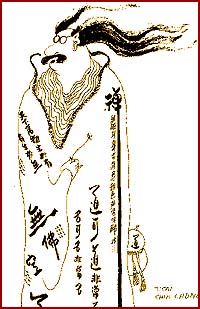 There was a moment a few years ago, that I remember vividly. I was listening to the sounds of my children playing a few doors away, but unable to join them. Flat on my back, I was exhausted, depressed, fearful. My mind raced, trying to figure out what was happening to me, while my body lay there, absolutely drained of all energy. Welcome to the wonderful world of Chronic Fatigue Syndrome (CFIDS)!
There was a moment a few years ago, that I remember vividly. I was listening to the sounds of my children playing a few doors away, but unable to join them. Flat on my back, I was exhausted, depressed, fearful. My mind raced, trying to figure out what was happening to me, while my body lay there, absolutely drained of all energy. Welcome to the wonderful world of Chronic Fatigue Syndrome (CFIDS)!
When I first came down with CFIDS, around eighteen years ago, it wasn't even considered a disease. I was told to get counseling, take more vitamins, get more rest. It was all in my head. There was nothing wrong with me. Of course, like many other victims of this insidious disease, I knew that there was something very wrong with me. But what could I do about it? I knew of no health caring practices or practitioners to address this.
Fortunately for me, I discovered Traditional Chinese Medicine (TCM), a tradition that goes back thousands of years and is used, all over Asia, by a majority of the world's population. Acupuncture helped me some, but since I had so little "qi" or vital energy to work with it was only marginally helpful. I followed this up by taking a Chinese herbal food supplement. This helped stabilize me, giving my burned out adrenals some support. I was able to get out of bed and resume my life again!
According to Chinese medicine, CFIDS is a condition marked by extreme-ly low kidney/adrenal energy coupled with low digestive energy and a disturbed "shen" or spirit energy. It doesn't matter whether, as in Western medicine, it is an auto immune disease or some kind of strange virus. Chinese medicine treats it as a complete syndrome. But more important to me than the description of symptoms and syndromes, or the philosophy underlying treatment, was the fact that the Traditional Chinese Medicine was the only thing that I found that works for CFIDS. In the end, it's my experience of healing that counts.
But I still had a lot of ups and downs until I began practicing "qiqong." In essence, qigong (chee goong) means working with the vital energy or basic life force and was originally part of Classical Chinese Medicine. There are many hundreds of different styles of qigong today, some of them dating back hundreds, if not thousands of years. Millions of people all over China practice some form of qigong every day-in parks, in the mountains, in hospital wards.
As it is classically understood, qigong is a practice whereby we are able to access, circulate and store qi, or vital energy, in our bodies. It is a combination of deep breathing, slow movement, and visualization. The practice of qigong can help us get in touch with the deepest areas of woundedness, disease, and pain and open them up to the healing light of the universe, which the Chinese call "Dao."
When I began to practice qigong I noticed that I was able to stabilize my energy to the point where I had energy that I could count on from day to day. This state of affairs stood in stark contrast to my experience with CFIDS when I didn't know from one day to the next, even one hour to the next, how I would feel (though it was usually on a scale of bad to worse). I began to be able to quench my being with the solid light of love and healing-to tangibly feel, in my body, a connection to the divine, eternal origin of all life.
To the Daoists (the originators of these practices) everything is energy-from emotions to spiritual experience. All of our experiences are variations of universal energy or qi. If you can open the often clogged channels in your own body you can help that life force to flow more easily and strongly throughout your system. Then, if you can tap into the infinite source of energy-from the heavens and from the living earth itself-you can circulate that extremely powerful energy throughout your body.
Today my qigong practice is my lifeline. It has opened up new worlds of experience and insight to me. The wonderful thing about qigong is that it is so adaptable for anyone, regardless of age, flexibility, and health issues. Practices range from the very simple to the quite complex, from meditative to vigorous.
Solala Towler is an instructor of Wuji (Primordial) Qigong. He is editor/publisher of "The Empty Vessel: A Journal of Contemporary Taoism" and is author of "Embarking On The Way: A Guide to Western Taoism." Currently, he is vice president of the National Qigong Association. Contact him at 800-574-5118 or at <www.abodetao.com>
This summer Portland hosts the National Qigong Association's annual conference entitled The Art and Science of Cultivating Qi. Hundreds of qi enthusiasts, teachers, healers, and students will gather at the beautiful setting of the Namaste Retreat Center in Wilsonville. As always, beginners are welcome. There will be beginning, advanced and medical qigong tracks so there will be something for everyone.

